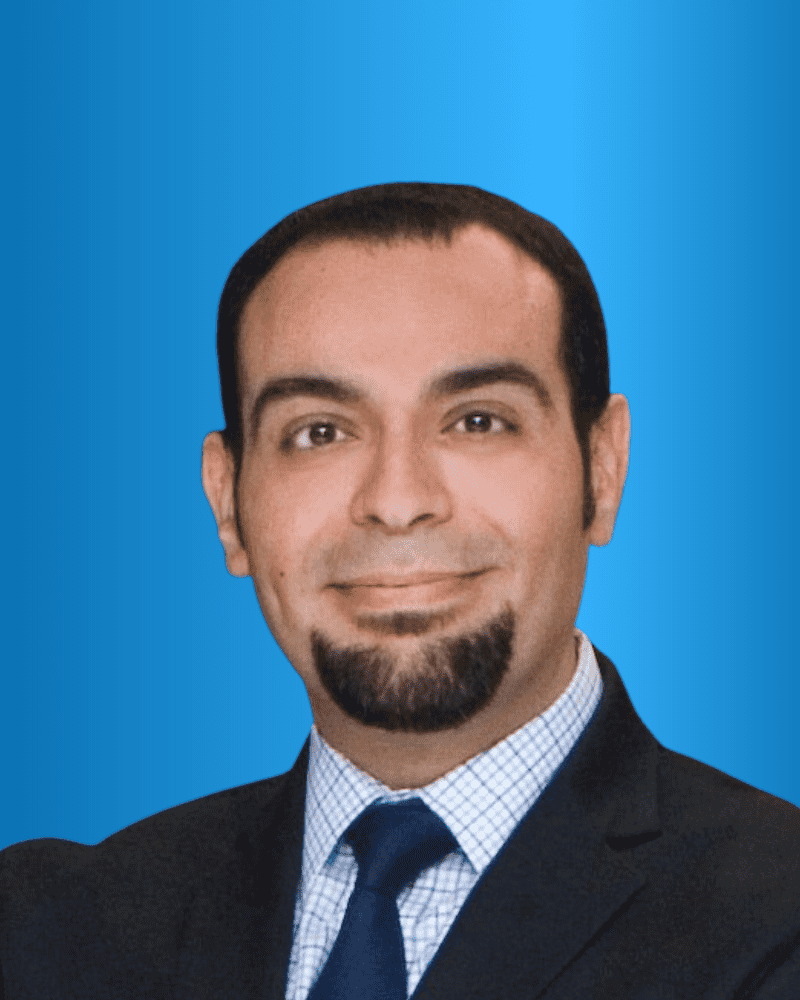Dr. Michael A. Yassa is a professor of Neurobiology and Behavior, Neurology, Psychiatry, and Psychological Science. He is director of the UC Irvine Brain Initiative and co-director of the Center for the Neurobiology of Learning and Memory (CNLM). Dr. Yassa is a UC Irvine PhD alum ’10 and began his career as an assistant professor at Johns Hopkins University. He returned to UC Irvine in 2014 where he now leads a diverse research group that is focused on understanding learning and memory mechanisms in the brain and using this knowledge to improve the human condition. Dr. Yassa has been deeply committed to inclusive excellence on the UC Irvine campus and in several professional organizations. As director of the CNLM he doubled the number of women faculty and faculty from underrepresented groups among the Center membership. In 2018, he served on a campus task force, commissioned by the Provost Leadership Academy, to establish guidelines to evaluate faculty contributions to diversity, equity and inclusion in merit and promotion actions. The task force developed the guidance and policies which are currently employed by Academic Personnel for writing inclusive excellence statements.
In 2020, Dr. Yassa spearheaded a campus effort to establish new policies and guidelines to address anti-Black racism on campus and improve campus climate and experience for Black students, staff and faculty. These efforts were on the heels of the murder of George Floyd and the widespread support of the Black Lives Matter movement. In this capacity, he led the campus #ShutDownSTEM town halls, which seeded the effort to build the UC Irvine End Racism Initiative (ERI), a first-of-its-kind grassroots Black Lives Matter initiative engaging more than 1,200 UC Irvine students, staff and faculty, aiming to dismantle anti-Black systemic racism on campus and beyond. Activities of this campus collaborative include raising awareness about racism, engaging in education to advance anti-racism and building institutional capacity to advance inclusive excellence. Efforts are systematically organized into six working areas: (1) recruitment of Black faculty, (2) recruitment and outreach to Black students, (3) retention, persistence and thriving in the academy, (4) evaluating faculty contributions to diversity in academic review, (5) curricular culture and pedagogical structures, and (6) implicit bias and anti-racist protocols, education and policies.
The ERI were recently awarded an Inclusive Excellence Spirit Award, which supports facilitation and leadership training to lead discussions and spearhead the reporting for campus policy changes and further catalyze cultural transformation. This facilitation training is seeding institutional capacity building for antiracism education and action planning and is coordinated with the Office of Inclusive Excellence’s Black Thriving Initiative (BTI) to ensure campus buy-in. Dr. Yassa serves on the advisory board for the BTI. He also serves as an advisor on the AAAS STEMM Equity Achievement (SEA) Change Initiative at UCI, which builds on our recent charter membership and bronze campus designation. In addition to this role at UCI, he was appointed by AAAS for a five-year term to serve on the SEA Change Initiative internal Advisory Committee.
In 2020, Dr. Yassa was appointed by the AAAS Board of Directors for a two-year term to serve on the AAAS Committee on Opportunities (COOS). COOS advises the Association on matters related to increasing the representation of women and minorities in science, engineering, and related fields. COOS members are distinguished by their “unwavering dedication to inspire new generations of scientists and cultivate talent from underrepresented areas of society.” In recognition of his contributions to DEI, Dr. Yassa received the Service in Social Justice Award by the Department of Neurobiology and Behavior in 2020.
Message from Dr. Yassa

As the inaugural associate dean of diversity, equity and inclusion in the Charlie Dunlop School of Biological Sciences, I am deeply committed to supporting all members of our Bio Sci community and ensuring that they are situated in a working and learning environment that allows them to thrive and promotes their success. In partnership with the School’s equity advisor, Dr. Aimee Edinger, My office works to ensure equitable and fair practices in faculty searches, hiring, merits and promotions. We also work closely with other associate deans to ensure inclusion in the graduate and undergraduate student experience, in and out of the classroom and the lab. We strive to develop and implement strategies to remove embedded inequities from mindsets, values and practices, and encourage the adoption of broader perspectives on judgments of faculty and student achievement and academic merit. We are also extremely evidence- and data-driven (both quantitative and qualitative) and uphold the principles of transparency and accountability. Any data collected by my office is publicly available and is provided in Schoolwide reports quarterly.
In addition to general functions of my office, my role as associate dean also extends to helping with questions or concerns about individual cases or incidents. I am happy to meet with any member of our community to discuss their concerns and am able to maintain confidentiality at all times (you can set up an appointment with me by contacting Ms. Vicki Thomas). The only exception to confidentiality is in cases of sexual harassment and sexual violence. I am a mandated reporter and required to report any and all such cases to the Office of Equal Opportunity and Diversity (OEOD). If you would like to discuss the details of such an incident confidentially, there are certain campus officials who must maintain confidentiality, unless authorized by the individual or required by law. These parties are: the Victim Advocate at CARE, Campus Social Worker, the Ombudsman, and the Counseling Center. Additionally, individuals may report an incident to UC Irvine Police and request to be treated as a “confidential victim”.

